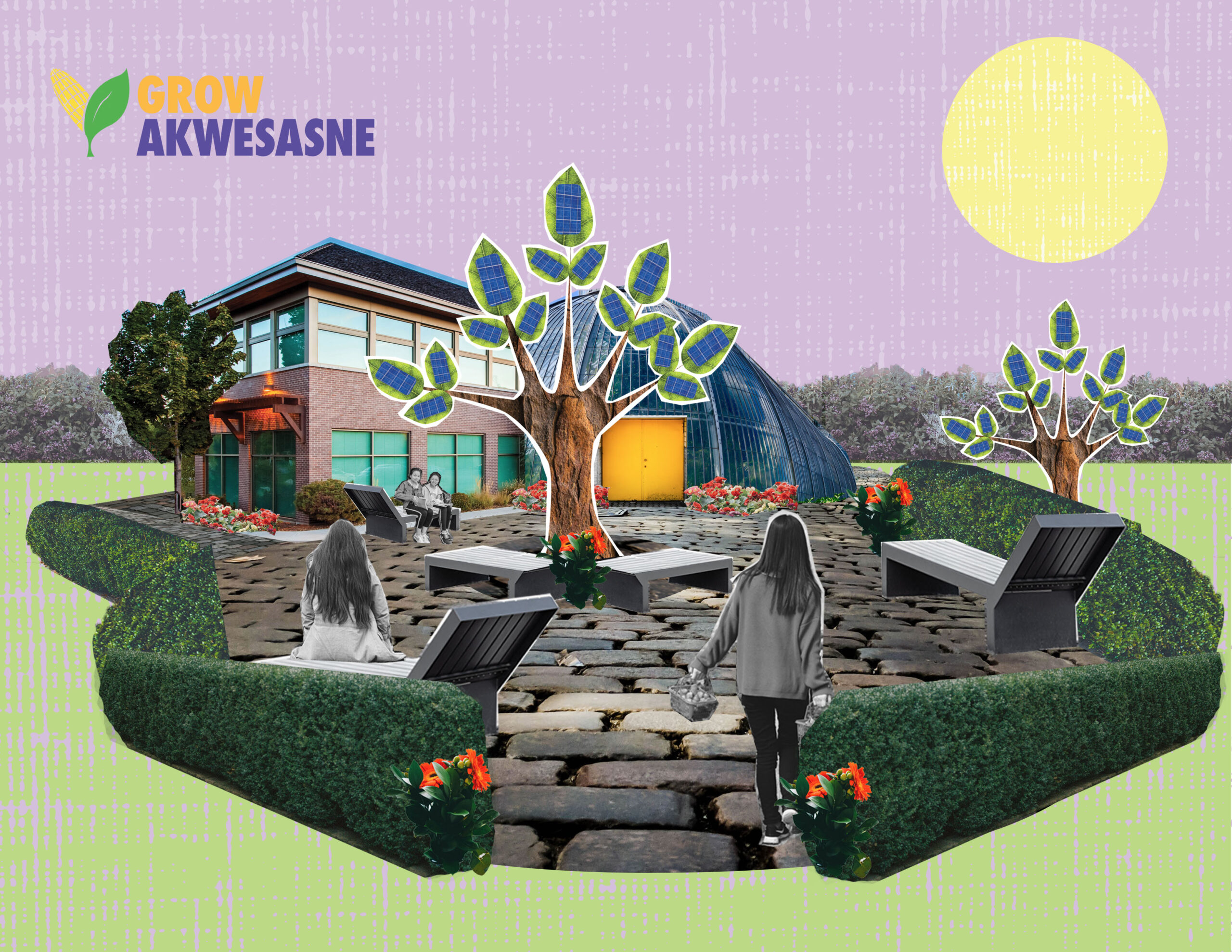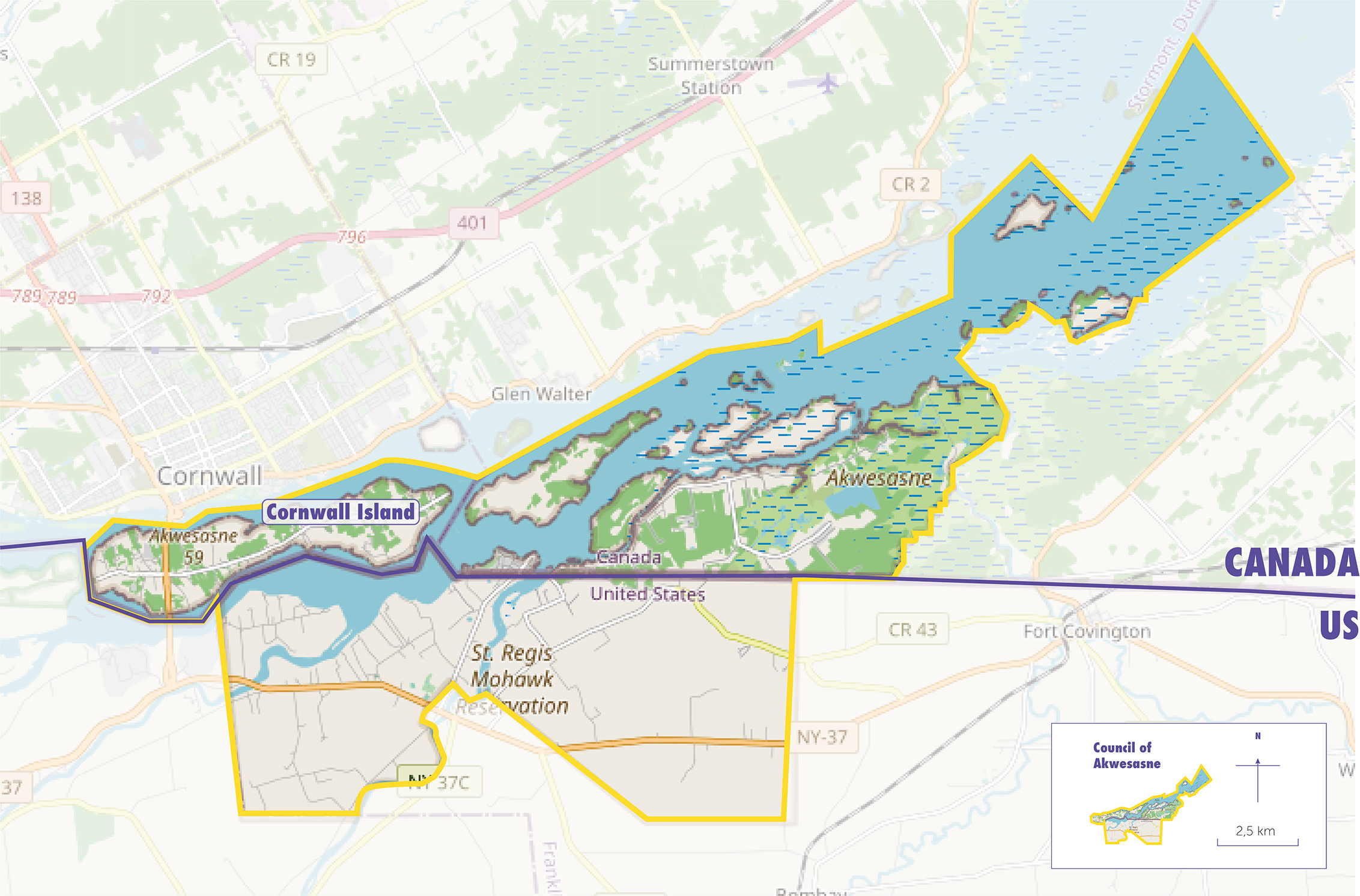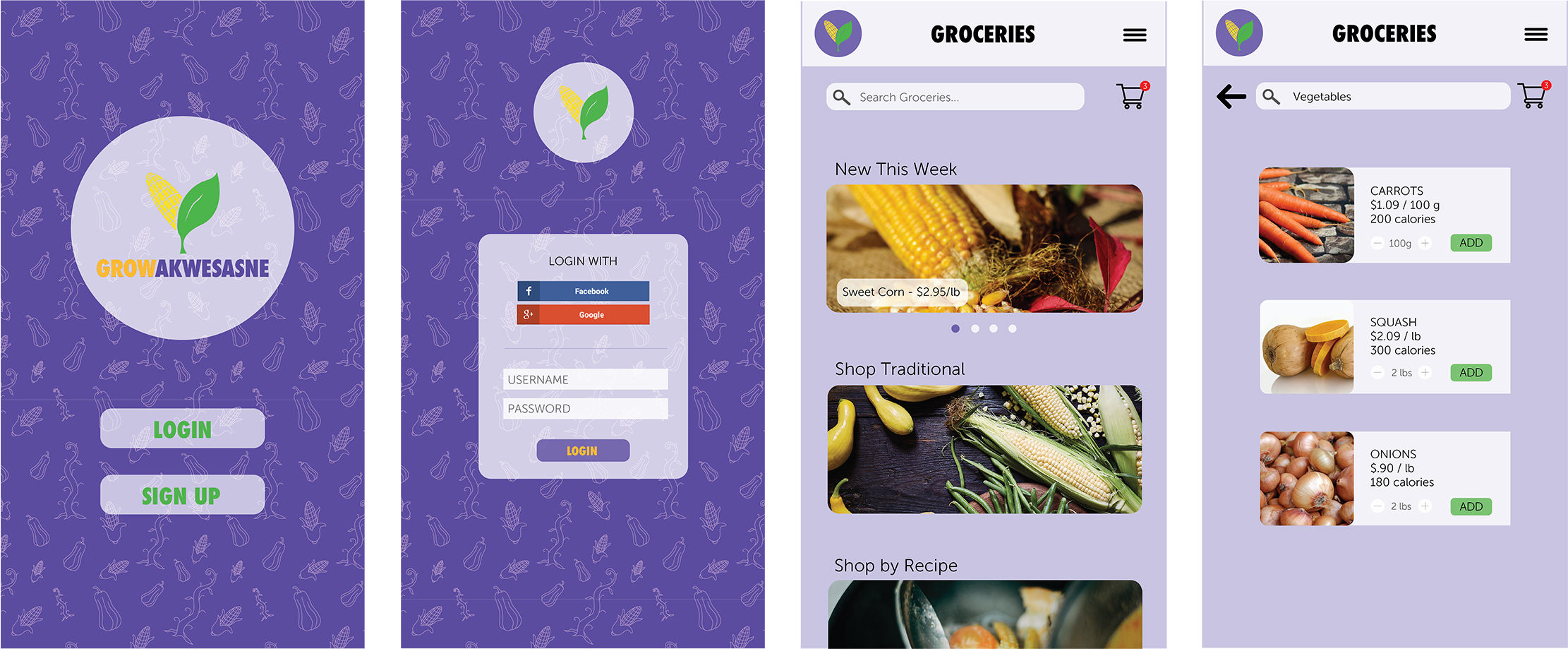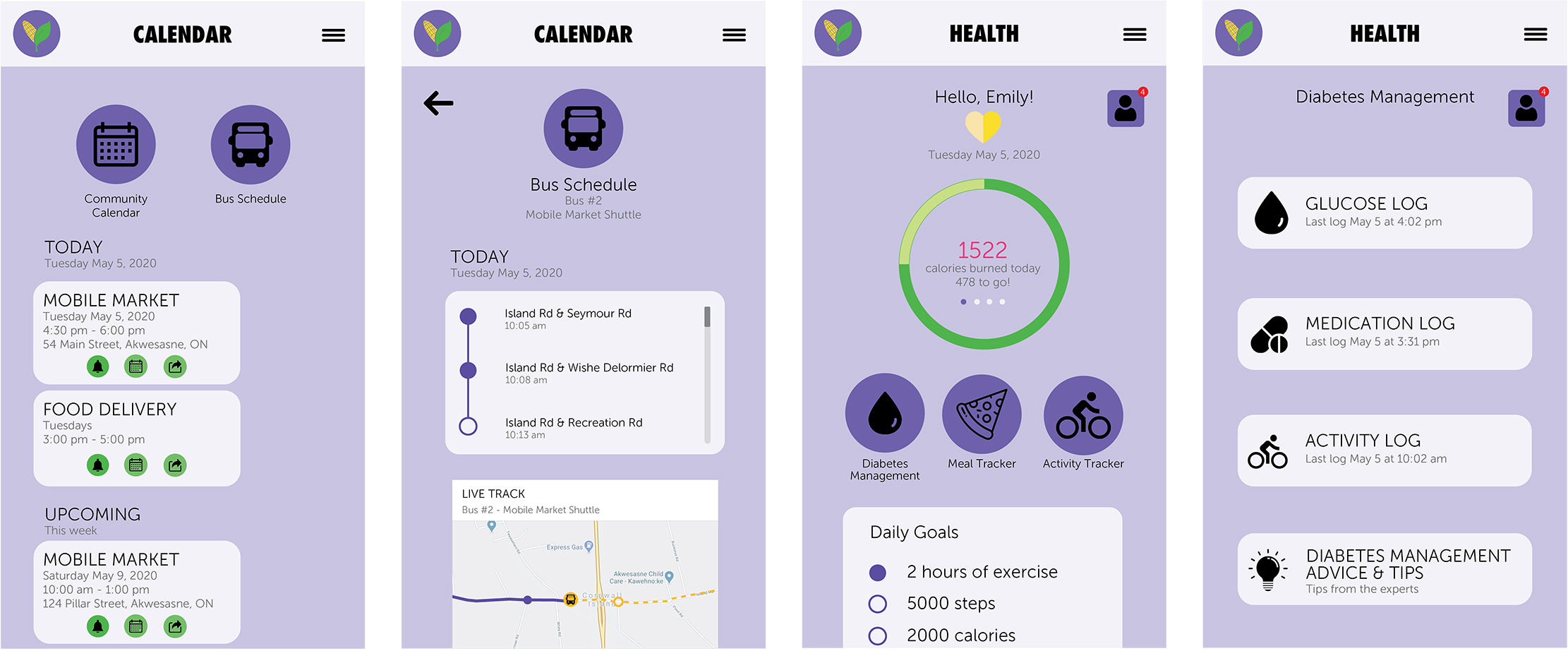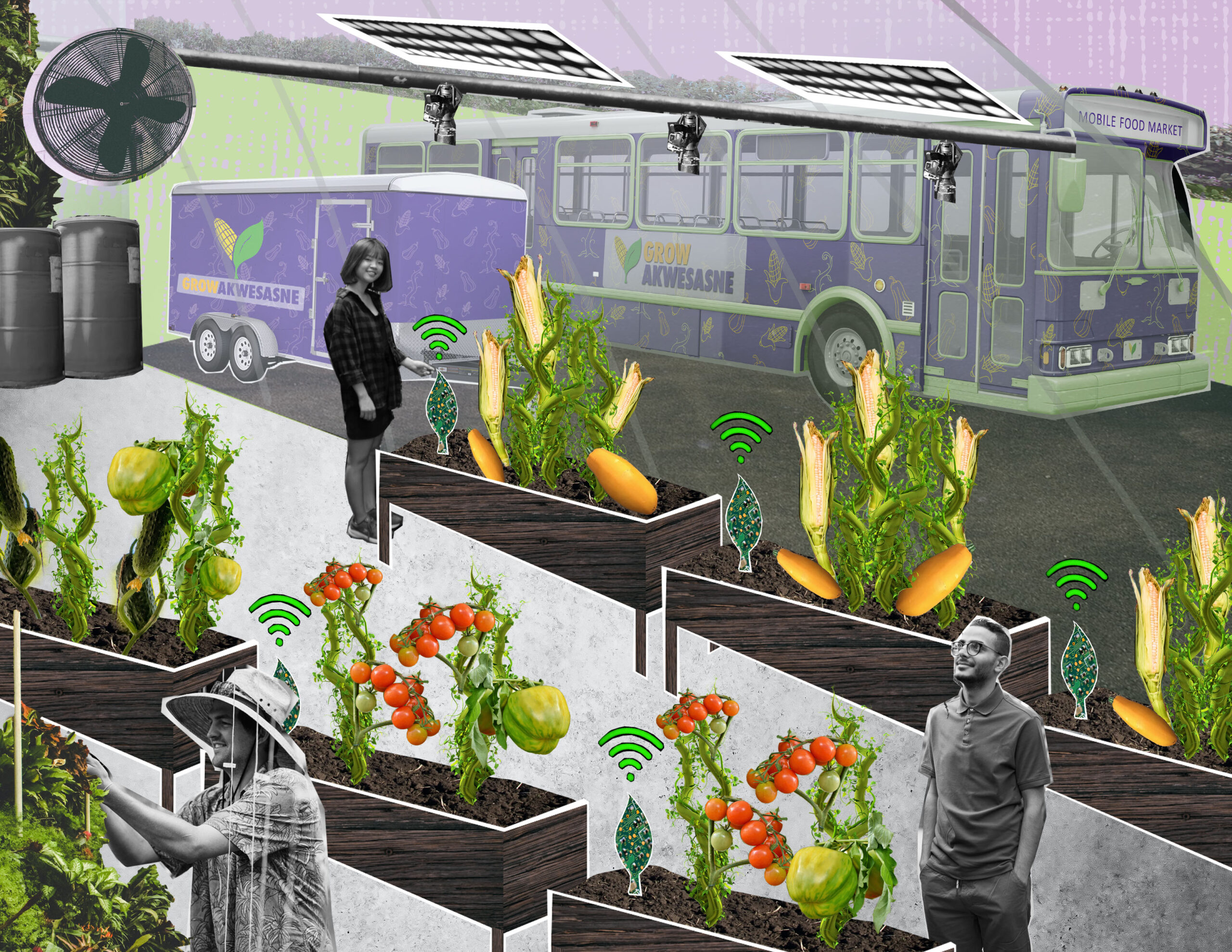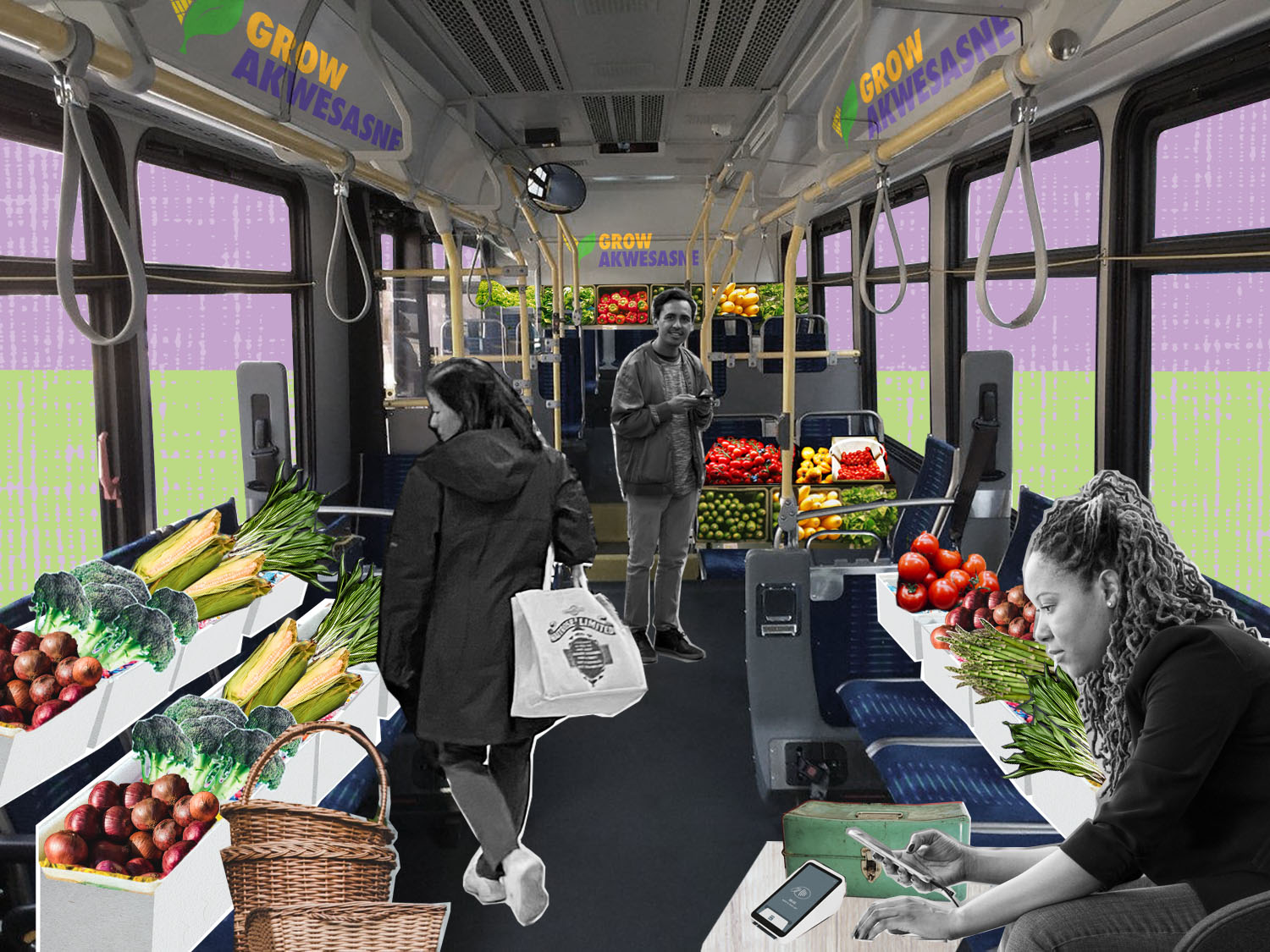Project Description
About the Mohawk Council of Awkwesasne
The Mohawk Nation at Akwesasne is a territory that straddles the Montérégie administrative region of Quebéc, Ontario, and the State of New York. Although divided by an international border, the residents consider themselves to be one community. Like many communities across Canada, Akwesasne has experienced a disruption of culture that has impacted their traditional ways of life.
Type 2 Diabetes in Akwesasne
Akwesasne’s proposal for the Smart Cities Challenge by Infrastructure Canada, aimed to address a challenge caused by loss of traditional ways. The Mohawk Council of Akwesasne’s Smart Cities Challenge goal was to leverage smart technologies to reduce new cases of type 2 diabetes in Akwesasne to the Canadian average. The prevalence of type 2 diabetes in the community is high and sits at 33% compared to 9%, which is the Canadian average.
IwB Design Proposals
Students in the 2019-2020 IwB cohort expanded on the Mohawk Council of Akwesasne’s Smart Cities Proposal for the International and Production Charrette using the ESC Framework. An adjusted vision, mission, and project scope were created for the design proposals.
Vision: To prioritize traditional knowledge to address health inequity within the Akwesasne community that decreases the prevalence of type 2 diabetes and improves quality of life for current and future generations.
Mission: To develop a robust food system that incorporates smart technology and traditional knowledge and food structures that strengthens community bonds and acts as a catalyst for improving overall community health.
Proposed Site/Project Scope: This design proposal will focus on Cornwall Island, Ontario where the solution can run as a pilot project before being scaled up to other parts of Akwesasne.
Solution
Grow Akwesasne is a health system that combines multiple features to create a holistic ecosystem. The main component of Grow Akwesasne is the 5 locations of the Greenhouse and Community Spaces. These hubs are greenhouses that also serve as community spaces and each space is paired with a bus that doubles as a mobile market. The Grow Akwesasne system, connected through a digital application, not only feeds the community on Cornwall Island, but also supports the community’s social, cultural and physical health goals.
The Grow Akwesasne digital application strengthens and re-emphasizes traditional foods and ways of cooking, while the community spaces create opportunities for community bonding with food as the central piece. Grow Akwesasne can eliminate food deserts on Cornwall Island by reducing barriers to accessing healthy food and supporting community members to lead a healthy life. With Grow Akwesasne, there is potential to lower the rate of type 2 diabetes from 33% closer to the Canadian average of 9%. Grow Akwesasne can contribute to the prevention and management of type 2 diabetes, while serving the community in so many other ways by providing and creating opportunities for residents of Cornwall Island and Akwesasne as a whole.
Process
This section will show how the ESC Framework was tested using the Akwesasne Design Proposal. It showcases how the goals of each step of the framework was met by Grow Akwesasne, establishing it as an Ethical Smart City solution to address the needs of the community.
1. KNOW
What is your definition of an Ethical Smart City?
An Ethical Smart City for Akwesasne is one that acknowledges that borders do not separate community or nation, where traditional knowledge is shared and prioritized in decision making, and quality of life is influenced by the strength of the community for current and future generations.
2. PERSONALIZE
What are the needs of your community (including the right challenge to address, the prioritized values of the community and the appropriate technology to address it)?
Challenges
- There are no grocery stores on the almost 8 kilometer wide Cornwall Island.
- The food desert leaves a void to accessing healthy and affordable food.
- Transportation to grocery stores as well as health appointments is hard to get when needed.
Values
- Accessibility: Access to healthy and affordable food is limited by the lack of transportation options, in addition to a lack of grocery stores on Cornwall Island
- Collaboration: Disruption of community, culture, and tradition have impacted the community’s loss of traditional ways which includes community.
- Inclusion: The community has an interest and need to return to certain traditional values and developing a culture around food in the community can help those living with type 2 diabetes and help present new cases from emerging.
Technology
- Solar Renewable Energy: Renewable solar energy can be used to create clean energy and boost plant growth.
- Sensors and IoT: Sensors can be used for plant production and help create the optimal conditions for plant health and growth.
- Digital Application: Existing digital infrastructure in Cornwall Island, such as smartphones and Wi-Fi spots, can be used to support a holistic health system. An app can allow for accessible access to specific health interventions, such as diabetes health management, that can remind people of their glucose levels and activity log.
3. STRATEGIZE
What are the community goals that the solution to the challenge should embody?
- To bring the incidence of type 2 diabetes from 33% down and closer to the Canadian average of 9%.
- To increase access to fresh, healthy food that also emphasizes traditional ways.
- To integrate technologies that serve a purpose in supporting their goals.
- To sustain community, culture, and tradition within our ever changing society.
- To create a holistic health solution that all members of the community can have ownership and success in.
4. DESIGN
What is the design solution to address the challenge and how does it uphold the ethical values?
Grow Akwesasne is a holistic health system. The system includes 3 parts.
- The Greenhouse and Community Spaces are enabled by renewable energy and IoT sensors. The 5 greenhouses are distributed to ensure that no one on Cornwall island is more than a 20 minute walk away. Since a core value within the community is accessibility, it’s important that there is more than one greenhouse and that they are equally distributed across the island. Additionally, the Greenhouse and Community Spaces embody inclusion as they act as an employment and volunteering hub for people of all ages within the community.
- A bus that has an attachable trailer aims to reduce barriers to accessing healthy foods by acting as a food delivery service, mobile market, and shuttling service. Since access to healthy foods is a big challenge for the community, it’s important that healthy and affordable food is available to the community throughout the year. The bus works in partnership with the Greenhouse and Community Spaces to ensure that food goes from the greenhouse to the table.
- The Grow Akwesasne App: A digital application that connects the community to healthy recipes, allows people to track and monitor their health, using the diabetes health management reminder feature, and supports the community’s social, cultural and physical health goals. The app also helps community members track their food deliveries and allows them to manage their health by planning health appointments and logging caloric intake. The app can be used by people with type 2 diabetes or anyone looking to improve their overall health.
5. ADAPT
What is the implementation plan of the solution?
The Implementation Plan has three components. The pilot, the expansion, and the final phase.
Grow Akwesasne is the pilot project for community members of Cornwall Island. The holistic health system is budgeted at around $5 million dollars and aims to gather feedback from the community over a 2-year period. This feedback will be used to learn about changes in the type 2 diabetes levels throughout Cornwall Island.
In the next phase, Grow Akwesasne will expand beyond Cornwall Island, to other parts of the Akwesasne community in Quebec. The number of Greenhouse and Community Spaces will increase to reach the wider Akwesasne community. Additionally, in this phase, Grow Akwesasne will create partnerships with existing community events that foster social connection such as the Kids ‘n’ Cops yearly event run by Akwesasne Mohawk Police Service, and the Thompson Island Cultural Camp, a cultural learning camp.
The final phase decentralizes Grow Akwesasne and allows community members to grow their own food through a network of decentralized mini-greenhouses while also giving them the opportunity to sell their own produce. Community cooking classes and cultural events will continue to bring the community together. A robust self-management system will incentivize healthy behaviour – such as daily exercise and glucose management – through a rewards program supported and run by the Mohawk Council of Akwesasne.
